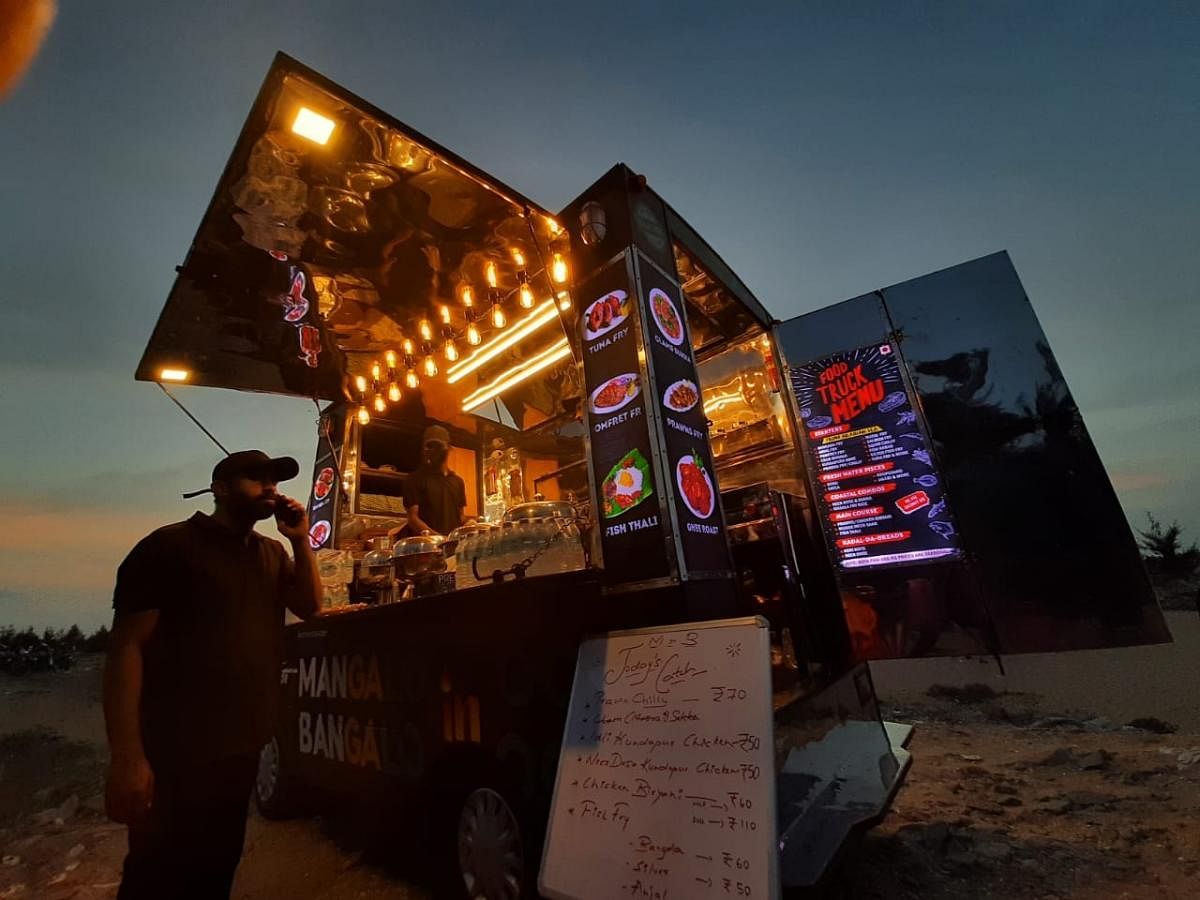
The food truck scene in Bengaluru is standing on its last legs. The numbers have dropped from 48 at the start of 2020 to less than 10 now, says Varun Sequeira, president of the Bangalore Food Truck Association.
Various factors are at play, of which the pandemic is the biggest. Battered by the lockdowns, many trucks exited the business, while some truck owners opened restaurants and cloud kitchens to stay afloat.
Siddhanth Sawkar, owner of Spitfire BBQ, wound up his food truck business in 2020 and started a pizzeria in Yelahanka instead.
“I had stopped truck operations in 2019 because of a cholera scare on the streets but then came the pandemic, and my staff went back home and I was forced to shut it down entirely,” he says.
However, Siddhanth has plans to restart his food truck business in 2022, when hopefully the pandemic would have subsided.
Rohith Bhanuprakash, who runs Bready Steady Go at V V Puram, is less hopeful. He fears Bengaluru will have no food trucks left by the end of the next year, and so, he plans to set up a cafe soon.
He explains, “Space is a huge constraint as you have to rent a separate space just to store your inventory. You also need to buy a UPS to keep the food truck running. It all ends up being a little too expensive.”
Licensing is another issue. “We are still waiting for food trucks to get a unique licence that allows them to move around and operate as a mobile business. Without it, we are treated the same way as street vendors and hawkers,” says Varun.
Sanket K Kharvi runs the food truck Mangalore in Bangalore at
R R Nagar. In the absence of a proper licence, owners like him need permission both from the authorities and the landlord. “It is a tough business but it can be managed if approvals come through,” says Sanket, whose business was recently hit by the rains.
Food truck owners are now mostly operating at private venues and corporate events.
“A lot of food trucks rely on events. It is easier to function within closed spaces than being a mobile business, ” observes Varun.
Shalini Lal, founder of Kart-O-Tize, Horamavu, vouches for this business model.
“Apart from doing private events, I have tie-ups with apartment complexes across the city. They allow me to set up my food truck on their premises throughout the year,” she explains.